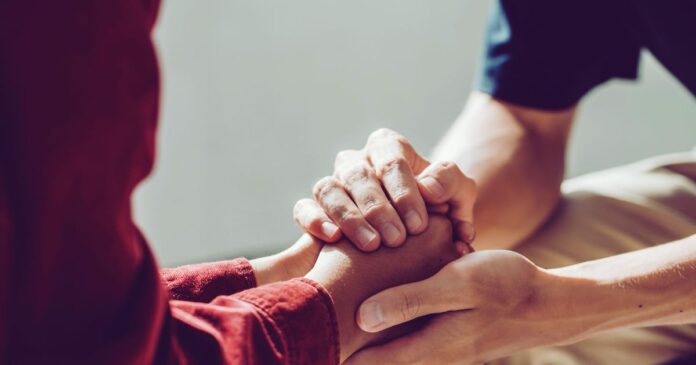On a recent weekend, half a dozen people joined an evening Zoom call to play a game of trivia, switching between Mandarin and English as they guessed answers to Halloween-themed questions.
The group — members of New Jersey’s Chinese community — logged on at 7 p.m. for the monthly game night to improve their mental health.
“We try to propose games to really connect with the families,” said ShuXian Mai, coordinator at the Chinese American Mental Health Outreach Program (CAMHOP).
“Our goal is to decrease the loneliness that came about during COVID-19 with the rise of anti-Asian hate,” she added, referring to incidents across the United States targeting Asian Americans during the pandemic.
CAMHOP, an initiative of the National Alliance on Mental Illness, which addresses mental health issues in New Jersey’s Chinese community, is one of the groups that seeks to alleviate mental health in the Asian American community.
According to data from the federal Substance Abuse and Mental Health Services Administration, 14.4% of Asian Americans reported having mental illness in 2019. Last year, that figure jumped to 18.1%, though according to experts, the statistics are likely undercounted.
Experts say Asian Americans in New Jersey don’t have enough resources available to them, which is where Mai and her team come in, offering group support and game nights as alternatives to traditional therapy – supports that may be more culturally compatible with some Asian communities.
“Many Asians do not access mental health care due to several barriers,” said Sunanda Gaur, a professor of pediatrics at Rutgers Robert Wood Johnson Medical School, who recently co-authored a report on Asian mental health.
Teresa Hsu, a psychologist and founder of a New York-based nonprofit that promotes mental health education in Asian communities, says part of the problem is there aren’t enough culturally tailored therapies.
According to recent data from the federal Substance Abuse and Mental Health Services Administration, 13.5% of Asian American adults sought mental health treatment, compared to 27% of their white counterparts.
Can’t see the chart. Click here.
Researchers found that current therapeutic practices have mostly been tested on white populations, and not enough researchers study the effectiveness of these therapies on other cultures.
“It’s a very Eurocentric field,” Hsu said.
These therapies might work for some members of the Asian community depending on their age, immigration history, or if they’re more assimilated, Hsu said.
But for others, because of stigmas about seeking mental health or cultural emphasis on not sharing emotions, western therapies might lead patients to “drop out of treatment,” Hsu said.
It’s why alternative community resources like game nights or Tai Chi classes are important, Hsu said.
Research has shown that various Asian communities are more likely to use alternative mental health care even though there is little research on its effectiveness.
Still, Hsu said it should not be discounted.
“These healing practices aren’t necessarily evidence-based in the same way, but they’ve also been helping for years,” Hsu said. “At the end of the day, the person is going to take what feels the most helpful and fulfilling for them.”
Mai noted that during CAMHOP’s game nights, peer mentors who lead the group will often avoid labeling members as depressed or anxious.
“There’s an instant recognition that labeling of a mental illness is considered stigmatizing in the Chinese community,” Mai said.
Rather, at the start of the game night, peer leaders, who’ve had a two-week mental health training, ask each member how they are feeling, Mai said.
Some nights, members may not speak about their feelings. On other nights, a member might express them, Mai said.
“Instead of pushing this individual to talk and talk, we’re actively listening, and we instantly just understand what they’re trying to say and what they’re going through,” she said.
Mai doesn’t have concrete figures on how many people her group has helped but said members stated that the game nights and peer support groups reduced some of their loneliness.
“People do feel supported. They do feel heard. There is less suffering,” Mai said.
CAMHOP and its support groups can be reached by email at camhop@naminj.org or by phone at (732) 940-0991 ext.114.
Other New Jersey nonprofits providing mental health support include:
Read more like this:
Why Black teen suicides are up. Here’s what to know.
Three northern N.J. clinics to provide mental health services
N.J. Asian Americans lack support for post-pandemic mental health, study finds
Amira Sweilem may be reached at asweilem@njadvancemedia.com.
Welcome to Mosaic. Follow us on Instagram at @MosaicNJcom and on Facebook at MosaicNJcom and on YouTube at @MosaicNJcom.

